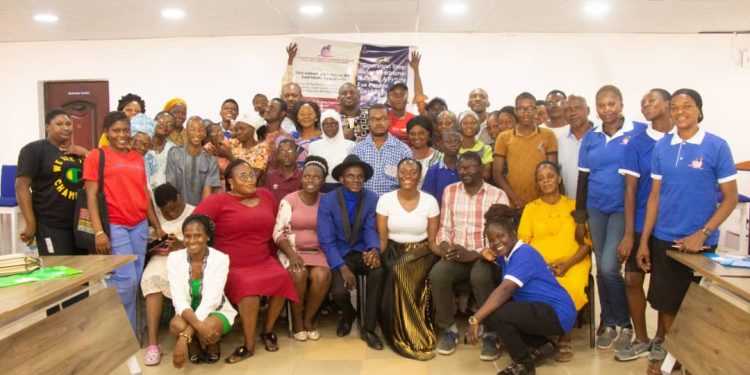Solomon Okelola, the president of Lionheart Ability Leaders International Foundation (LALIF), has said the group is championing the establishment of rehabilitation and vocational training centers for individuals with deaf-blindness to help them integrate with society seamlessly.
During the inaugural gathering of individuals with deaf-blindness in Lagos, Okelola emphasized the importance of creating educational and vocational opportunities tailored to their unique needs.
Held in Illupeju, Lagos and supported by the Disability Rights Fund, the event aims to foster a sense of community among individuals facing deaf-blindness and address the challenges they encounter.
Highlighting the obstacles faced by those with deaf-blindness in acquiring education and vocational skills, Okelola expressed concern over the absence of dedicated schools in the country to cater to their specific needs. He lamented that misconceptions among parents have led to the belief that individuals with deaf-blindness cannot learn, resulting in their isolation indoors.
“With today’s gathering, they have come to realize they are not alone. They recognize the importance of uniting as a collective voice to advocate for the interests of individuals with deaf-blindness in Lagos State and Nigeria as a whole. Our next step is to officially register the association of persons with deaf-blindness as a distinct disability cluster in Nigeria, with plans to launch the association later this year, possibly in September,” Okelola stated.
He further revealed ongoing efforts to establish a learning center dedicated to meeting the educational and skill development needs of individuals with deaf-blindness. “By the end of this year, we anticipate having a center where individuals with deaf-blindness can gain knowledge and skills.”
During the event, Adenike Oyetunde-Lawal, the General Manager of the Lagos State Office for Disability Affairs (LASODA), disclosed that the state is currently amending the special peoples’ law to meet with the emerging needs of the disability community.
She urged the newly formed cluster to provide input to ensure that the law adequately addresses the specific needs of this emerging disability cluster.
She further detailed that efforts were also underway to deploy sign language interpreters to hospitals, enhancing service delivery for individuals with special needs. “We are in the process of amending our special people law. Please come together and share your input, which will be representative of your community, so that we can incorporate it into the law. This makes it easier for us to enforce regulations, advocate for change, and monitor progress,” Oyetunde-Lawal emphasized.
“We are working towards placing sign language interpreters in general hospitals before extending to primary health centers.”

